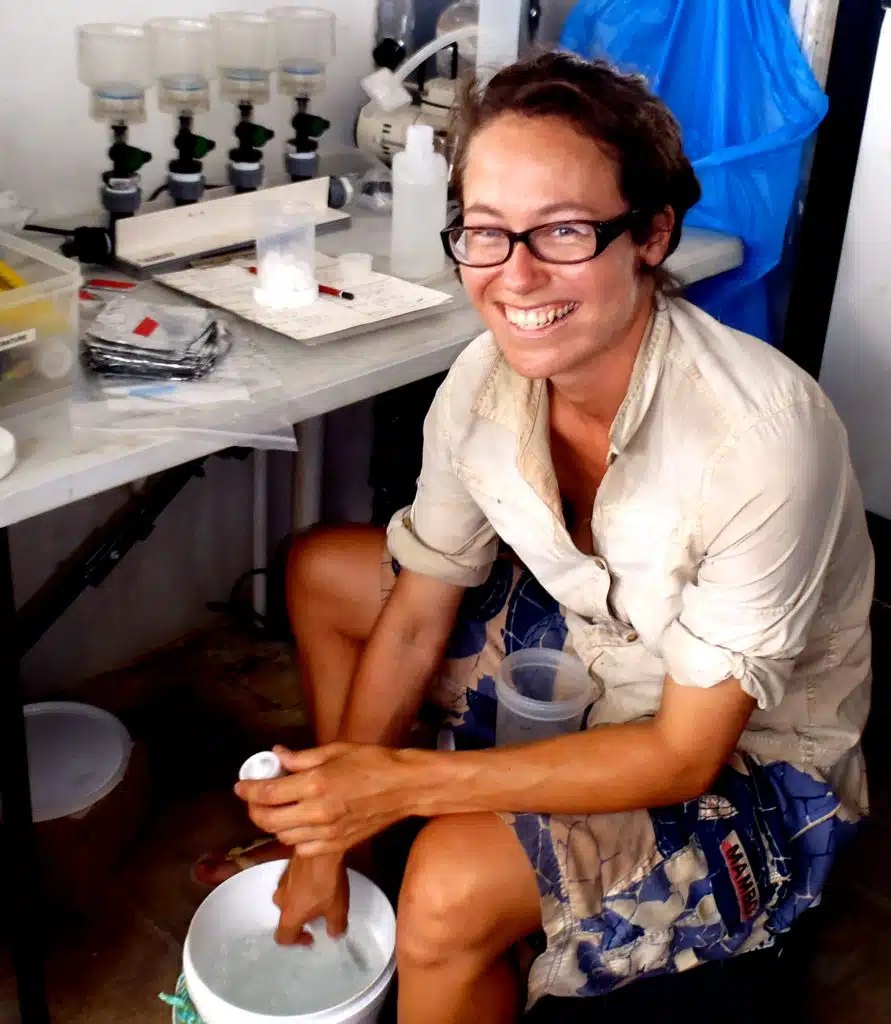Researchers have found that coral reefs living with enormous tides, like those in Western Australia’s Kimberley region, experience extremes in temperature and light yet are resilient and healthy.
Dr Renee Gruber at the Australian Institute of Marine Science (AIMS), along with collaborators at the University of Western Australia and Traditional Owners, conducted some of the first-ever research on reefs experiencing large tides, which are found in the pristine Kimberley region.
“The Kimberley has the world’s largest tropical tidal range, where tides can reach the height of a three-storey building. During low tide, water becomes very shallow on reefs and water temperatures can rise dramatically, up to 10oC in several hours,” says Dr Gruber.
Dr Gruber spent three months collecting data on water motion, temperature, light, dissolved oxygen and nutrients. As part of this experiment, the team used several metres of scaffolding to keep the tide from drowning their instruments.
“My findings show that these reefs have adapted to extreme temperature and light conditions and are as healthy as the reefs we have previously studied,” Dr Gruber says.
“This process has occurred over thousands of years. However, these corals may provide clues on the nature of this resilience to extremes.”





 Fresh Science is on hold for 2022. We will be back in 2023.
Fresh Science is on hold for 2022. We will be back in 2023.